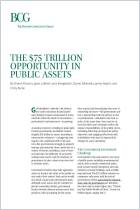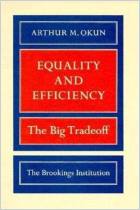
Limits to Privatization
How to Avoid Too Much of a Good Thing
Read offline
Recommendation
Privatization was in vogue during the eighties and nineties. It aimed to eliminate, or at least reduce, corruption, inefficiency and the politicization of economic matters - and it often succeeded. However, in some cases, such as the World Bank, it failed so egregiously that even its erstwhile supporters began to have second thoughts about the wisdom of encouraging the state to manage basic infrastructures and industries. Authors Ernst Ulrich von Weizsäcker, Oran R. Young, Matthias Finger and Marianne Beisheim explore the experience of privatization and investigate the factors that have led to some of its successes and failures. They are not entirely free from bias, but the pro-privatization forces have so long dominated the public discussion that getAbstract finds this well-supported counterargument refreshing, and recommends this book to public and private sector executives and managers as well as to political officials.
Summary
About the Authors
Ernst Ulrich von Weizsäcker chairs the Environment Committee in the German parliament and is a noted expert on sustainable development. His previous books include Earth Politics. Oran R. Young is a professor of environmental science and management at the University of California Santa Barbara. Matthias Finger is a professor at the Swiss Federal Institute of Technology College of Management, and dean of the School of Continuing Education. Marianne Beisheim is an assistant professor of political science at the Free University Berlin.










Comment on this summary